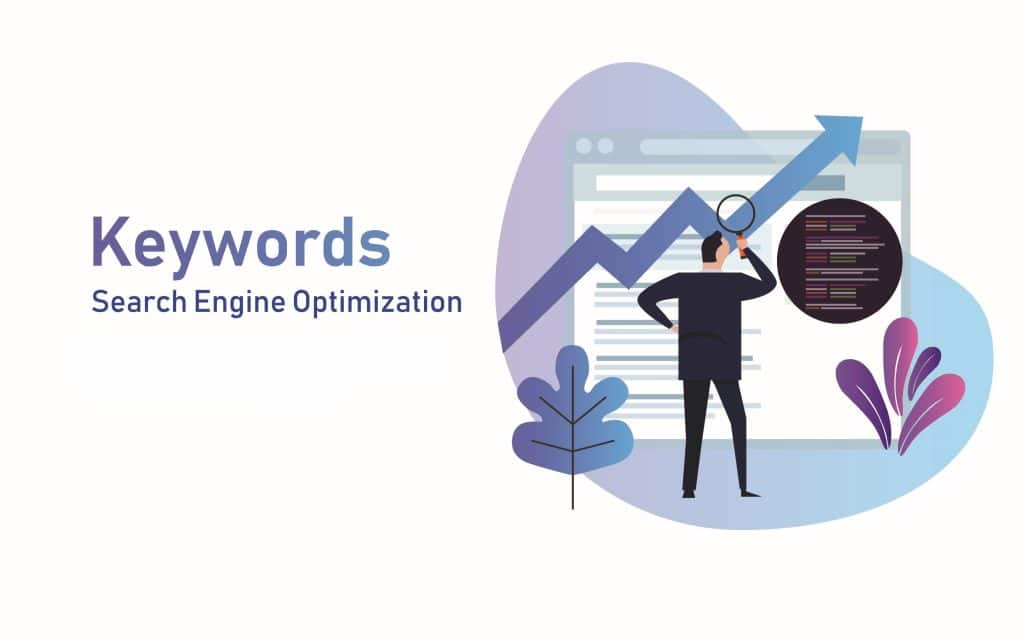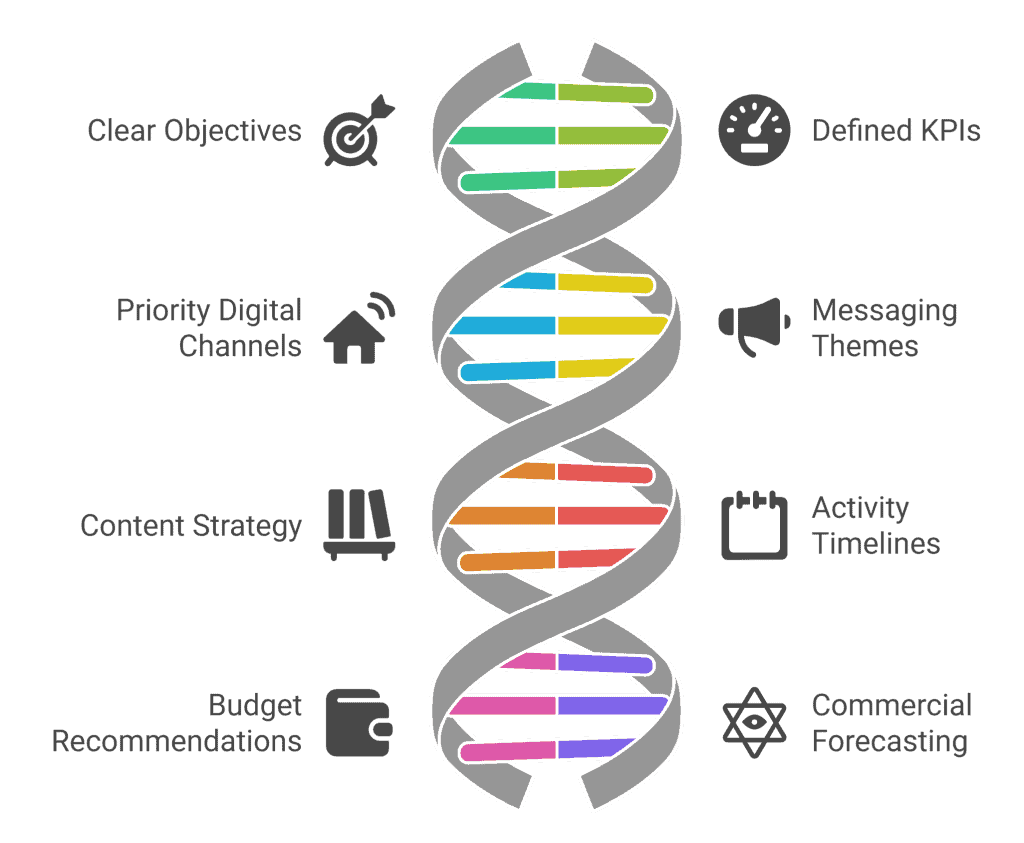Uncategorized
Part 1: How Part 1: How OM Can Help You Boost Your Digital Marketing StrategyPart 1: How

Why Digital Marketing Fails Without a Strategic Foundation
Digital marketing has become a key driver of growth for many businesses, but countless organisations still struggle to generate predictable results. The problem rarely lies with the tools, technologies, or platforms themselves. The real challenge is that many SMEs undertake digital activities without establishing the strategic framework required to make them commercially effective.
A large number of businesses invest heavily in SEO, PPC, paid social, email campaigns, and content production without stopping to identify whether these channels align with their audience, their positioning, or their commercial objectives.
The Strategic Marketing Mastery course gives SME owners and junior marketers the structured thinking and commercial clarity required to build a stronger digital marketing strategy with confidence. The course walks learners through the strategic foundations that shape effective digital activity, including audience definition, positioning, messaging and channel prioritisation, so digital decisions become purposeful rather than reactive. Participants gain the knowledge and practical tools needed to create a focused marketing plan that supports long-term growth and improves the performance of every digital channel they manage. Contact Us: 0333 320 4108 or info@opportunitymarketing.co.uk.
Why Most Digital Marketing Underperforms Without Strategy
Many SMEs invest time, money, and internal effort into digital channels only to experience poor results. A common belief is that the issue lies with execution or platform choice, yet the real problem sits far deeper. Digital marketing is highly dependent on accurate targeting, strong messaging, data-driven prioritisation, and strategic sequencing. When these elements are absent, campaigns lose direction and fail to support commercial goals.
Digital marketing underperforms for a variety of reasons, and the following subsections break down the core challenges that OM frequently identifies during its marketing consultancy and audit processes.
The Problem With Random Acts of Marketing
A significant portion of SME marketing budgets are spent reactively rather than proactively. Many businesses feel compelled to participate in SEO, social media posting, video creation, or advertising simply because these activities have become industry norms. This reactive mindset encourages organisations to jump between tactics without a clear understanding of how those activities contribute to customer acquisition, customer retention, or revenue growth.
Several businesses also fall into the trap of copying competitors or following trends without analysing whether those actions are commercially appropriate. Tactics may appear attractive on the surface, yet when they lack strategic direction, they become inefficient. When decisions are governed by guesswork, a business unintentionally creates disjointed digital activity that adds cost but produces little commercial benefit.
Random acts of marketing create further challenges when internal teams and external suppliers operate independently. This leads to misalignment between messaging, branding, campaign goals, and audience expectations. Without consistent strategic oversight, businesses find themselves investing in digital channels that cannot support each other effectively.

The Confusion Created by Execution-Focused Agencies
Many SMEs rely on digital agencies for execution, yet they often specialise in specific disciplines such as SEO, PPC, social media management, or creative design. Their focus is usually channel performance rather than business-wide strategic integration. When a business outsources execution without strategic guidance, the agency naturally prioritises its remit, which can cause misalignment across the broader digital ecosystem.
Agencies frequently lack visibility in the organisation’s full commercial context. They may not have access to audience research, competitor positioning, pricing strategy, or internal capabilities. Without this context, the agency fills gaps with assumptions or generic tactics. The result leads to fragmented digital activity that delivers vanity metrics such as impressions, clicks, or traffic rather than meaningful commercial outcomes.
This condition is not due to agency incompetence; it is a structural issue. An execution partner is not designed to replace strategic leadership. OM was created to fill this gap and provide impartial, independent strategic direction before any tactical channel is activated.
The Importance of Building Strategic Foundations First
Digital marketing requires a structured foundation to deliver commercial results. Strategic foundations guide the business’s focus, target audience, messaging, and digital channel support.
Businesses that lack this foundation often experience the following problems:
- Confusing or inconsistent messaging across digital platforms
- Poor targeting that produces irrelevant or low-value leads
- Ineffective budget allocation across channels
- Difficulty evaluating performance or identifying underperforming areas
- Inability to scale digital activity with confidence
A strong strategic foundation connects every digital activity to a clear commercial objective. OM helps businesses construct this foundation before engaging in tactical execution. This prevents wasted budget, strengthens internal decision-making, and improves alignment between digital channels.
How OM Builds a Digital Strategy That Delivers Real Results
OM provides a structured, commercially grounded model for developing marketing strategies that support digital performance. The following sections explain how OM builds a strategy that reshapes, strengthens, and accelerates digital marketing effectiveness.
Research and Analysis for Digital Advantage
Research and analysis form the backbone of OM’s strategic model. These activities uncover the information required to make accurate marketing decisions and remove assumptions that often lead to wasted activity. OM conducts structured research to understand the internal and external factors that influence a business’s digital success.

Audience Research and Segmentation
Effective digital marketing starts with understanding who the business wants to attract. OM guides organisations through a detailed process that identifies ideal customer segments, purchase motivations, behavioural patterns, and audience pain points. Knowing which audience drives the greatest commercial value allows businesses to prioritise messaging, channels, and campaigns that resonate.
Audience segmentation helps businesses:
- Stop targeting broad or irrelevant groups
- Create personalised digital experiences
- Improve paid advertising efficiency
- Strengthen content quality and relevance
- Increase conversion rates across digital touchpoints
OM brings clarity to audience definition, which becomes the foundation for all digital activity.
Competitor Analysis and Market Positioning
Understanding how competitors behave digitally is essential. OM reviews rival positioning, content quality, channel usage, messaging, and digital strengths. This analysis reveals gaps, opportunities, and competitive threats that businesses may overlook.
This insight allows OM to:
- Highlight where a business can stand out
- Identify underserved market segments
- Craft more compelling value propositions
- Refine digital messaging to challenge competitors
- Inform decisions about which digital channels should be prioritised
A business gains control of its competitive digital identity once positioning is clarified.
Digital Behaviour and Keyword Insights
Digital behaviour signals help businesses understand what their audience searches for, how they evaluate suppliers, and what influences their buying decisions. OM interprets keyword trends and user behaviour patterns to align digital strategies with genuine search intent.
This step helps businesses avoid guessing what prospective customers want and direct their digital content toward genuine demand. It also strengthens SEO, content planning, and paid advertising strategies.

Sharpening Competitive Positioning to Strengthen Digital Presence
Digital marketing becomes significantly more effective when a business’s positioning is clear, distinctive, and commercially powerful. OM works with organisations to clarify their value proposition and define what sets them apart.
Positioning influences:
- Brand credibility
- Perceived value
- Quality of digital engagement
- Differentiation across digital channels
- Strength of messaging and content
Poor positioning is one of the main reasons digital marketing underperforms. OM clarifies the narrative that sits behind digital activity, transforming how potential customers perceive the business online.
Developing a Messaging Framework for Digital Platforms
Messaging shapes a business’s perception, conveys its value, and motivates its audience to act. OM helps businesses construct a messaging framework that communicates clarity, credibility, and commercial relevance.
A strong messaging framework:
- Aligns all digital channels
- Strengthens brand authority
- Improves click-through rates in paid campaigns
- Supports SEO by building content around meaningful language
- Improves on-site conversion through clear value communication
Once messaging is structured correctly, every digital asset becomes more effective, from website pages and social posts to email campaigns and paid advertising.
Strategic Planning Before Tactical Execution
Many businesses begin with tactics instead of a strategy. OM helps businesses prioritise and sequence their digital activities to support long-term growth. This includes identifying which channels matter most, how they complement each other, and how activity should be rolled out to deliver commercial results.
A structured digital plan created with OM includes:
- Clear objectives
- Defined KPIs
- Priority digital channels
- Messaging themes
- Content strategy
- Activity timelines
- Budget recommendations
- Commercial forecasting
This structured plan reduces guesswork, improves decision-making, and prevents budget waste.

How OM Strengthens Your Digital Channels for Long-Term Growth
Digital marketing channels are only effective when they operate in alignment with a strategy that defines purpose, audience, sequencing, and commercial objectives. OM helps businesses strengthen each channel by connecting them to a broader strategic framework. This allows organisations to shift from fragmented activity to a coordinated digital ecosystem capable of generating sustained results. The following sections explore how OM supports businesses across core digital channels and how strategy transforms the impact of website development, SEO, content marketing, paid advertising, social media, and email marketing.
Website Review and Digital User Journey Improvement
A website functions as the centre of the digital ecosystem. Many businesses invest heavily in websites without understanding how visitors behave or how on-page decisions influence conversion outcomes. OM conducts detailed website assessments to identify strategic weaknesses and opportunities for improvement, using commercial logic rather than design bias. The goal is to strengthen user flow, improve clarity, and optimise conversion opportunities.
A typical OM website review evaluates:
- Messaging clarity
- Navigation and user flow
- Calls to action and conversion points
- Brand positioning consistency
- Page structure, readability, and content hierarchy
- Mobile responsiveness
- Relevance of content to audience needs
- Technical considerations that influence user experience
This assessment helps businesses identify where prospects may be dropping off, misunderstanding the offer, or disengaging due to unclear messaging. OM translates this insight into actionable recommendations that strengthen the website as a commercial asset rather than a simple digital brochure.
A stronger website user journey offers:
- Higher engagement
- Improved conversion rates
- Better lead quality
- Stronger brand credibility
- More consistent performance across digital channels

Businesses often underestimate the commercial impact of strategic website changes. OM helps organisations re-evaluate their website as a revenue engine tied directly to their digital marketing strategy.
Aligning SEO Activity With Strategic Intent
SEO has become a major priority for many SMEs, yet a significant number of organisations approach SEO without understanding how strategic foundations influence long-term results. SEO is not simply about keywords, backlinks, or technical fixes. It is driven by audience behaviour, search intent, messaging, and content quality. OM helps businesses reframe SEO not as a standalone activity but as a strategic function that supports customer acquisition.
OM’s SEO alignment process includes:
- Reviewing keyword intent against target audience needs
- Identifying commercially valuable search opportunities
- Evaluating competitor search positioning
- Guiding content planning based on strategic messaging
- Prioritising topics that support digital authority
- Reviewing on-site content for clarity, value, and relevance
This approach helps businesses move away from shallow content and focus instead on producing material that strengthens authority and drives meaningful engagement.
A strategically aligned SEO approach supports:
- Higher quality organic traffic
- Longer dwell times and better engagement
- Improved conversion rates
- Reduced dependency on paid advertising
- Greater visibility for commercial keywords
SEO becomes significantly more effective once it is tied to broader strategic goals rather than isolated search metrics.
Content Strategy and Digital Thought Leadership
Content plays a pivotal role in digital marketing, but many organisations struggle to create material that reflects expertise, adds genuine value, and positions the business as a trusted authority. OM helps businesses build content frameworks that align with their strategic goals, commercial priorities, and audience expectations.
OM’s content strategy development includes:
- Identifying core content themes that align with positioning
- Creating topic clusters that strengthen SEO
- Providing a structure for educational, persuasive, and conversion-focused content
- Establishing a publishing plan for blogs, guides, case studies, FAQs, and thought leadership material
- Designing content that supports both awareness and conversion stages of the buyer journey
Strong content helps businesses attract, engage, and convert their audience. It supports brand credibility, fuels SEO, and provides a long-term asset that drives ongoing visibility.
Digital thought leadership also becomes a competitive advantage. Once a business is ready to move away from reactive digital activity and adopt a strategy-first approach that supports measurable growth, we provide consultation on decision-making within the market. OM supports businesses in building this type of digital authority.

Work With Opportunity Marketing
Strong digital performance begins with clear strategic thinking, and Opportunity Marketing helps businesses build that foundation with structure, commercial focus, and confidence. If your organisation is ready to move away from reactive digital activity and adopt a strategy-first approach that supports measurable growth, our consultancy services provide the clarity and direction you need. Whether you require a full marketing strategy, ongoing outsourced support or structured mentoring for internal staff, we work closely with you to create a marketing approach that strengthens decision-making, reduces wasted spend and drives meaningful results.
To discuss how we can support your business, get in touch today and start building a digital marketing strategy grounded in purpose, insight and long-term value.
Visit: opportunitymarketing.co.uk
Call: 0333 320 4108
Email: info@opportunitymarketing.co.uk


Ian Kirk
Founder at Opportunity Marketing
Ian is the founder of Opportunity Marketing marketing, with over 18 years of experience in successfully setting up marketing departments, creating marketing strategies and implementing these strategies across a wide number of SME companies in both the B2B and B2C sectors through a variety of channels.






